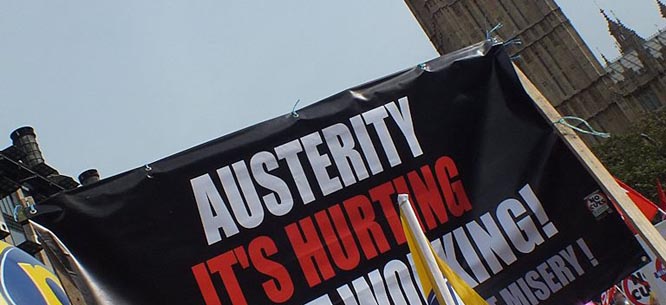Introduction: The European Left in Crisis?
Introduction: The European Left in Crisis?
Despite widespread economic problems and suffering, there has been no upsurge in support for the European left. The articles in this section examine left parties’ current attempts to deal with these challenges.

Europe is going through its worst crisis since the Great Depression and the Second World War. Economically, the continent is in a terrible mess, with the euro area having experienced overall negative growth rates in three of the past five years, tragic and unprecedented levels of unemployment (especially among youth), and a dramatic increase in poverty and inequality. In addition, Europe has been tearing itself up over identity and cultural issues. Previously the provenance of the extreme left and extreme right, fears about European integration’s impact on national sovereignty and identity have bled into the mainstream while debates about immigration are now a mainstay of the popular press, intellectual journals, and election slogans. Politically, things in Europe are not much better. Disillusionment with democracy and mainstream political parties and institutions has been rising steadily, and extremist, nationalistic, and xenophobic parties are gaining ground almost everywhere.
Those interested in the European left may be the most depressed of all. Despite widespread economic problems and suffering, there has been no upsurge in support for the left. Indeed, when the crisis first hit, most electorates initially turned to center-right parties for solutions. Similarly, the mainstream left has not been able to put forward convincing, coherent, or effective responses to European publics’ cultural fears, first ignoring and then incoherently addressing identity and immigration issues, and vacillating on the role of Europe.
The articles in this special section analyze these and other problems facing the European left today. Focusing in particular on economic and cultural/identity issues, these articles lay out the backstory to the left’s current challenges, examine left parties’ current attempts to deal with these challenges, and make some suggestions about how they might successfully respond to them.
Jonathan Laurence asks why the left, despite a history of championing the poor, downtrodden, and minorities, has had difficulty assimilating Muslim immigrants. Laurence offers some fresh thinking on these issues, and some guidance on how the left might move forward. Marc Olivier Baruch investigates the (perhaps surprisingly) heated debate over same-sex marriage in France. Baruch explains the background to this opposition as well as why the French left was not more uniform and vocal in its support of this cause.
Hans Kundnani, meanwhile, addresses the crucial and puzzling “German question,” namely, why the SPD has been unable to come up with a convincing alternative to Merkel’s European and economic policies. Kundnani points out that the SPD is at least partially a prisoner of its past—a past that both limits what the SPD can change as well as what it wants to change. Gerassimos Moschonas turns our attention to southern Europe with an insightful analysis of SYRIZA’s rise and how it is inextricably intertwined with PASOK’s failures. Finally, Mark Wickham-Jones examines the British Labour party, asking why it has been relatively unsuccessful in challenging the Conservatives on economic issues. Like Kundnani, Wickham-Jones focuses on the “constraints” inherited from Labour’s previous period in government and offers some insights into how contemporary internal party debates might shape Labour’s future course.
Together these pieces paint a picture of a left that has lost its way but has many strengths on which to build. Much of the left has been blindsided by Europe’s current crisis. But it has weathered worse crises in the past, and its long-standing commitments to economic equity, fairness, and social inclusion will hopefully enable it to weather the current crisis as well.
-Sheri Berman




